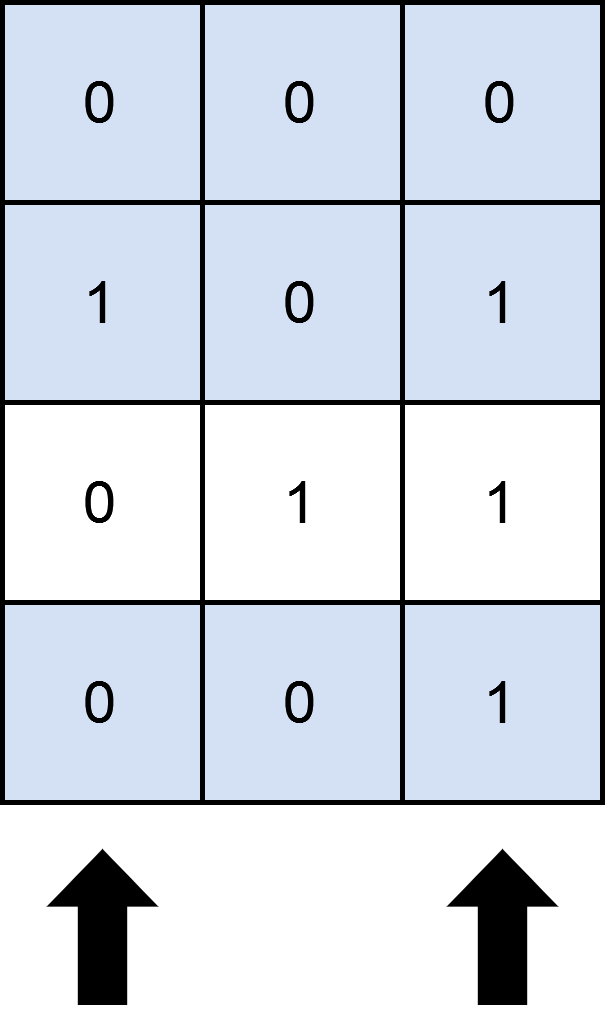
You are given a 0-indexed m x n binary matrix mat and an integer cols, which denotes the number of columns you must choose.
A row is covered by a set of columns if each cell in the row that has a value of 1 also lies in one of the columns of the chosen set.
Return the maximum number of rows that can be covered by a set of cols columns.
Example 1:

Input: mat = [[0,0,0],[1,0,1],[0,1,1],[0,0,1]], cols = 2 Output: 3 Explanation: As shown in the diagram above, one possible way of covering 3 rows is by selecting the 0th and 2nd columns. It can be shown that no more than 3 rows can be covered, so we return 3.
Example 2:

Input: mat = [[1],[0]], cols = 1 Output: 2 Explanation: Selecting the only column will result in both rows being covered, since the entire matrix is selected. Therefore, we return 2.
Constraints:
m == mat.lengthn == mat[i].length1 <= m, n <= 12mat[i][j] is either 0 or 1.1 <= cols <= n